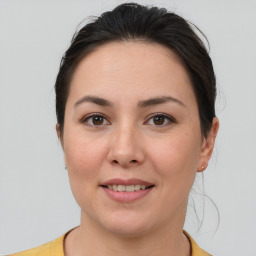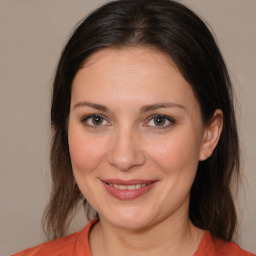This assessment will cover certain questions which are like:
- Why and how the development in learning is managed.
- Elaborate the future goals and challenges through which expectations in the university course can be managed.
Introduction
Reflection is an important procedure which assists people in evaluating their past and current tasks and performances which helps them develop the required competence and skills for their future (Hilsdon, 2012). Below is an essential reflection associated with a module, which reflects the reasons and activities which assisted in my development as a learner. Furthermore, the reflection also covers how future challenges and university course expectations will be undertaken and addressed
Need to Consult Directly With Our Experts?
Contact UsHow and why have I developed as a learner?
Being a learner means being open to acquiring better knowledge about different concepts and always being eager and accepting towards enhancing the skills for future career roles (Brooman and Darwent, 2012). The module has been a very helpful experience towards developing my personality as a learner and ensuring that I appropriately and effectively grow personally and professionally.
There were several teachings within the module which lasted about 5 weeks, where several skills and competencies were communicated to the students for them to experience how certain factors are understood and applied in the real world context. Certain frameworks, academic writing, and several communication and presentation skills were emphasised upon within the module which were directed towards increasing the learning capabilities of students. The frameworks include PESTLE analysis, which is a model that is applied to assess the influencing factors within a company's external environment. Furthermore, SWOT analysis is another appropriate approach which is directed towards analysing the internal competencies and weaknesses of a firm and external threats and opportunities. The academic writing part included certain essentials that are necessary to be adhered to in the context of presenting the information and reports in a correct, precise and professional context. In addition to this, IT skills were taught which were related to how different technological and digital software and programmes are used.
At the module, its beginning, I was very anxious as I was excited and motivated about learning different concepts and theories that would help me develop as a learner in an appropriate academic and professional manner. Moreover, the feeling mostly related positively throughout the module, as I was very effective in learning certain contributing aspects that were subjected towards a constant development of different concepts and abilities.
In relation to the overall module, some negative and positive elements shaped my learning process effectively (Husebo, O'Regan and Nestel, 2015). The reason for the same is that there are several skills and aspects in which I was very effective, while there were some which still reflect a broad scope for improvement. Taking about the effective ones, I was very much effective in gathering the data and analysing the same in the context of applying them within the frameworks. Moreover, in terms of PESTLE analysis, I used the skill of gathering and interpreting data in a way which provided me guidance in applying this framework well. Furthermore, another skill which I was quite effective in was in relation to using the language while performing academic writing, which helped me in delivering the content in a very prominent manner.
However, there were certain negative aspects related to the module as well. For example, my IT skills have been quite weak, which provided hindrances in relation to working with different software and programmes. In addition to this, despite of my English skills being good, I was very much ineffective when it came to academic writing. This is because I tend to use phrases and certain words quite repeatedly within my work, along with using certain jargon, that reflected ineffectively in context of professionalism in my work. Moreover, my presentation lacked the flow, which became very much ineffective for readers to understand the connectivity and relevancy of my information. In addition, I was also quite weak within SWOT analysis, as I found it complex to understand its application effectively.
However, despite these factors, the overall experience had been very much effective when it came to enhancing the scope of improvement, in context with learning (Tsingos, Bosnic-Anticevich and Smith, 2014). This is because I got exposed to learning so much about certain concepts, theories and competencies, which expanded my mind frame in relation to applying certain professional concepts into daily practice. Hence, my development as a learner had been very much ensured by working within the module.
Approach towards future challenges and expectations of a university course
For an individual, it is highly crucial that certain approaches are developed and adhered to in context of enhancing the scope of improvement in past inefficiencies. Furthermore, adopting some of these methods could also contribute towards addressing future challenges and expectations from a specific university course.
In my context, the very first approach for me in the development of my IT skills would be training by simulations (Duong, 2015). This would allow me to perfectly align the concepts with real-time application, along with necessary guidance and walk-through. Furthermore, in relation to concepts and models like SWOT analysis, I would be approaching certain conferences and journals, that would help me understand how the concept actually works in real-time. In addition to this, related towards the presentation, I would be undertaking my teacher's guidance and feedback in order to improve my skills and enhance the flow of the information. Furthermore, all these activities and procedures would very much contribute in relation to helping me with addressing future challenges associated with my learning, as well as several expectations of a prominent course within the university, which would help me prosper my academic and professional capabilities and growth within my future career.
Conclusion
Thus, it could be concluded from the above essay, that reflection must be utilised in a very prominent and regular manner which assists an individual in completely reflecting upon their experiences and modifying their current actions for growth as a learner. Moreover, in relation to addressing future challenges, people must adopt certain approaches such as training or conferences, which would help them enhance their competence against these complexities and work in a highly professional manner towards these aspects.
References
- Brooman, S. and Darwent, S., 2012. A positive view of first-year undergraduate reflective diaries: Focusing on what students can do. Reflective Practice. 13(4). pp.517-531.
- Duong, M.T., 2015. A portfolio-based learner autonomy development model in an EFL writing course (Doctoral dissertation, School of Foreign Languages. Institute of Social Technology. Suranaree University of Technology).
- Hilsdon, J., 2012. Rethinking reflection. The Journal of Practice Teaching and Learning,6(1), pp.57-70.
- Husebø, S.E., O'Regan, S. and Nestel, D., 2015. Reflective practice and its role in simulation. Clinical Simulation in Nursing. 11(8). pp.368-375.
- Tsingos, C., Bosnic-Anticevich, S. and Smith, L., 2014. Reflective practice and its implications



 Company
Company


















